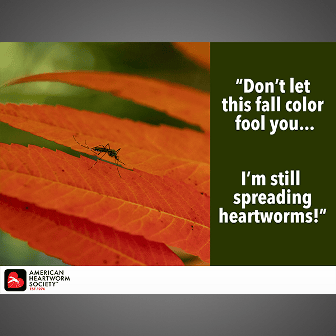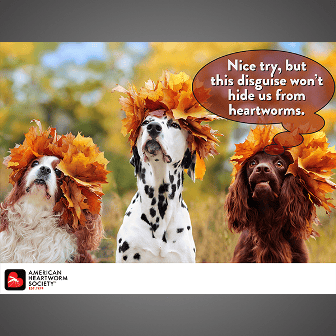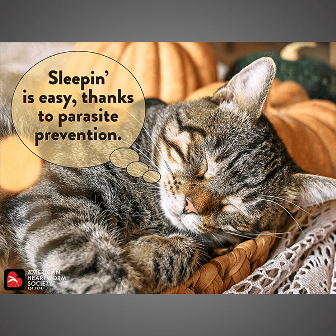CHRISTOPHER J. REHM, DVM
The American Heartworm Society (AHS) has developed almost 30 pages of guidelines for the prevention, diagnosis and treatment of heartworm disease in dogs and cats.1 But the AHS’ two basic precepts are summed up in just 12 words: test every 12 months and prevent heartworm disease 12 months a year. While this sounds simple, achieving compliance can be challenging.
I practice near the Gulf Coast of Alabama, a highly endemic area for heartworm disease. We joke here that the mosquito is really the state bird instead of the beautiful Yellowhammer and we also have populations of feral dogs and coyotes that serve as wildlife reservoirs for heartworm disease. In 2013, it was determined that Alabama is the highest heartworm incidence rate in the country1 with an annual average of 90 heartworm-positive dogs per clinic.
While some veterinarians cite cost as the leading reason for noncompliance, I disagree.
I believe that most clients whose pets aren’t on heartworm preventives simply don’t understand the need and the urgency for protection or the risk of heartworm disease. Many pet owners say they have “inside” pets or perceive they don’t have a mosquito problem, and conclude their pet doesn’t need heartworm protection.
Enlist the Veterinary Team
What do we do? First, consider whether a culture change is needed in your practice. Does each member of the team keep his or her own pets on year-round heartworm protection? There’s no more compelling message than “here’s what I do for my pet,” but if staff members don’t practice what they preach, they will quickly lose the high ground. In my practice, new staff members attend weekly training meetings and shadow experienced members to ensure they understand the clinic’s protocols as well as how to discuss them with clients.
Every Pet, Every Visit
Be persistent. The best pet owners can start out committed to heartworm protection, but later lose their motivation. Treat every visit like a heartworm awareness visit and continually reinforce the importance of heartworm protection. My team has adopted a mantra for improving heartworm compliance: “Every pet, every visit.” We start the conversation during the client’s very first visit with their pet, and we never let up.
Tips to Boost Compliance
My team has implemented several strategies for keeping clients compliant with heartworm prevention:
- Establish the heartworm status of all pets at least once a year. In our practice, where heartworm incidence is very high, we run antigen and microfilaria tests twice a year.
- Discuss heartworm prevention at every visit. If compliance is good, pat the client on the back and encourage them to keep up the good work. If compliance is poor, discuss the risks of heartworm disease, as well as the cost (lower) and benefits (longer, healthier life) of prevention vs. treatment.
- Keep track of purchase history. Lapses in purchase are often a sign of lapses in administration.
- Encourage clients to sign up for online reminders to administer heartworm preventives.
CHRISTOPHER J. REHM, DVM
REHM ANIMAL CLINICS
MOBILE, ALABAMA
BOARD OF DIRECTORS, THE AMERICAN HEARTWORM SOCIETY
1 2013 American Heartworm Society Heartworm Incidence Survey







